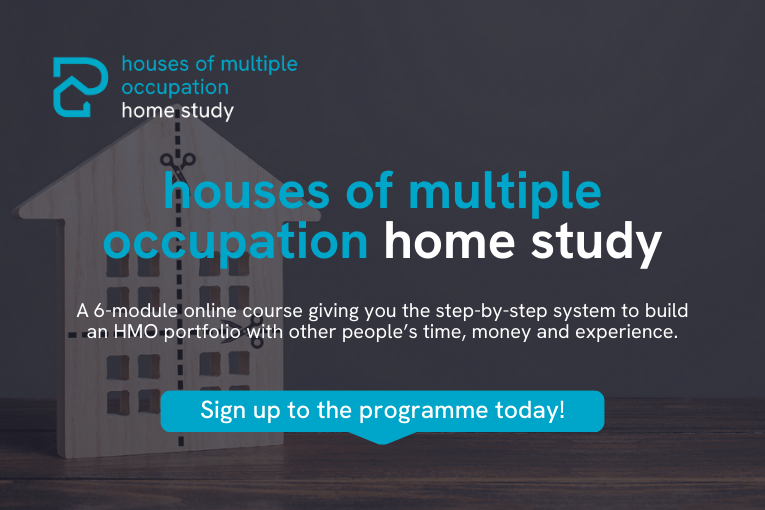
A 6-module online home study giving you the step-by-step system to build a cash generating HMO portfolio with other people's time money and experience.
Watch at your own pace, anytime, anywhere.
Instant online access.
Modules you will gain access to:
We’ve broken down our course into 6 very easy to follow modules, releasing them one week at a time.
This way, you can put your learnings into practice, as you go through with the Home Study.
Introduction to HMO's
Unlock the secrets of HMO investing, from generating a sum of £1,000+ monthly cash flow to navigating safety and legal requirements. You will come to know optimal strategies for property acquisition and tenant attraction.
Research
Master the art of conducting HMO research in order to make confident investment choices. Become an expert with calculating deal-making numbers, gauge demand and source off-market property deals for rapid portfolio growth.
Setting up HMO's
Learn advanced techniques like leveraging other people’s money, optimising tax structures, and fully furnishing HMOs without draining your savings, helping you scale your portfolio faster.
Rent to Rent
Discover how to replace your salary in 12 months without owning a single property by finding tired landlords open to creative offers. Hone your Rent to Rent skills, secure profitable contracts, and rapidly grow your portfolio.
PLO's
Learn how to control properties for just £1, solve vendors’ property problems, and generate monthly cash flow. Explore ethical, profitable strategies for buying above market value, and find homeowners open to creative deals.
Frequently asked questions
What is the definition of an HMO?
An HMO (House of Multiple Occupation) is a property rented out by three or more unrelated individuals who share facilities such as a kitchen, living room, or bathroom. Each tenant typically has a private bedroom, which may include an en-suite bathroom, but all other communal areas are shared. HMOs are a popular choice for students, young professionals, and people looking for affordable, flexible living arrangements. Local councils regulate HMOs and may require specific licenses, depending on the property size and layout.
Are HMOs a good strategy for the current market?
HMOs remain a strong investment choice in today’s market. Rising demand for affordable, flexible living arrangements, coupled with an increasing population and shrinking household sizes, has created a steady market for HMOs. Economic pressures mean more people are choosing to share accommodation to reduce living costs, making HMOs a reliable option for landlords seeking stable, long-term rental income.
What is the typical return on investment (ROI) for HMOs compared to single lets?
HMOs offer a significantly higher ROI than traditional single lets. While single lets typically generate an ROI of 5% to 7% (and as low as 2% to 3% in high-demand areas like London), HMOs often deliver a minimum ROI of 15%, with many investors achieving returns of 20% or more. This is because multiple tenants share the property, increasing the total rental income without a proportionate rise in expenses. HMOs are particularly attractive to investors seeking high cash flow and rapid portfolio growth.
How much money do I need to get started with HMOs?
To purchase an HMO, you typically need a 25% deposit for the property, along with additional funds for legal fees, Stamp Duty Land Tax (SDLT), and any refurbishment costs. If you’re converting a property into an HMO, you’ll need to budget for a more substantial refurbishment, which could range from £75,000 to £100,000 for a six-bed HMO, depending on the finish and local labour costs. Momentum investing can help you refinance and recycle your funds, enabling you to expand your portfolio with less upfront capital.
Can new investors successfully set up an HMO?
Yes, new investors can successfully enter the HMO market, even without prior experience. While HMOs are considered a more advanced strategy compared to single lets, with the right training and guidance, many beginners have successfully set up profitable HMOs. A step-by-step approach, such as following a structured programme, can teach you how to source the right property, navigate licensing and regulations, manage refurbishments, and attract reliable tenants. It’s essential to educate yourself to avoid common pitfalls and maximise returns
Is this strategy suitable for experienced investors?
Absolutely. For investors with experience in single lets or other property strategies, HMOs provide an opportunity to significantly increase cash flow and profitability. If you already have a portfolio, adding HMOs can diversify your income streams and accelerate your portfolio growth. Experienced HMO investors can also benefit from advanced strategies like managing larger properties, creating high-spec HMOs to target professional tenants, or expanding into more lucrative areas with higher demand.
Who pays for the bills in an HMO?
In most cases, the landlord covers the cost of utility bills, including electricity, gas, water, council tax, broadband, and sometimes a TV licence. Tenants pay a single monthly rent that includes their share of these costs. This setup is convenient for tenants and can be a cost-effective alternative to renting an individual property where they would be responsible for all utility expenses. For landlords, it’s important to monitor usage and budget for rising energy costs when setting rental prices.
What if there is an oversupply of HMOs in my area?
In areas with a high number of HMOs, competition can be fierce, but success lies in standing out from the crowd. Many HMOs are poorly designed, with basic furniture and outdated décor. By creating high-quality, well-furnished properties with a modern finish, you can attract tenants willing to pay a premium. Conduct thorough market research to identify tenant demand and understand what features they prioritise, such as en-suite bathrooms, communal spaces, or fast broadband. Differentiating your HMO can help you consistently achieve higher occupancy rates and better rental returns.
Can I buy HMOs using other people’s money?
Yes, buying HMOs using other people’s money is a common strategy among successful investors. Options include private loans, joint ventures, or working with angel investors. The key is to demonstrate that you can find profitable HMO opportunities and structure deals that provide value to both parties. Training programmes often include modules on attracting and working with investors, helping you build confidence in using this method. Leveraging other people’s money allows you to scale your portfolio faster without being limited by your personal finances.
What if I decide HMOs are not for me after joining the programme?
If you enrol in the programme and later decide that HMOs aren’t the right strategy for you, there’s no risk involved. Most programmes offer a satisfaction guarantee, allowing you to request a refund within a specified period, such as 14 days. This ensures you can explore the material and make an informed decision without financial pressure.
Can I invest in HMOs remotely if I don’t live in the UK?
Yes, many investors successfully manage HMOs remotely, even if they’re based outside the UK. Remote investing involves building a reliable local team to handle property management, maintenance, and tenant relations. Social media and live networking events can help you connect with local professionals and establish a power team. With the right support and systems in place, you can oversee your HMO investments from anywhere in the world.


100% Risk-Free Guarantee
We're confident you'll get so much value from this home study that we're offering a 100% Risk-Free Money-Back Guarantee.
If, for any reason, you decide within 14 days that this isn't right for you, simply let us know, and we'll refund the entire amount you paid. After the 14-day period, refunds will no longer be available.
This training is officially accredited by the CPD Certification Service, giving you the confidence that it meets industry-recognised standards for learning and development. On completion, you’ll receive a CPD certificate confirming your achievement and hours earned.

Meet Your Trainer: Simon Zutshi
Simon Zutshi, is a financially independent, professional property investor, best-selling author and widely recognised as the top wealth creation strategists in the UK. Having started to invest in 1995, he became financially independent by the age of 32.
Passionate about sharing his experience, Simon founded the property investor’s network in 2003 which has grown to become the largest property networking organisation in the UK, with monthly meetings in 50+ cities, designed specifically to provide a supportive, educational and inspirational environment for people like you to network with and learn from other successful investors.
Since 2003 Simon has taught thousands of entrepreneurs and business owners how to successfully invest in a tax efficient way to create additional streams of income, give them more time to do the things they want to do and build their long-term wealth.




